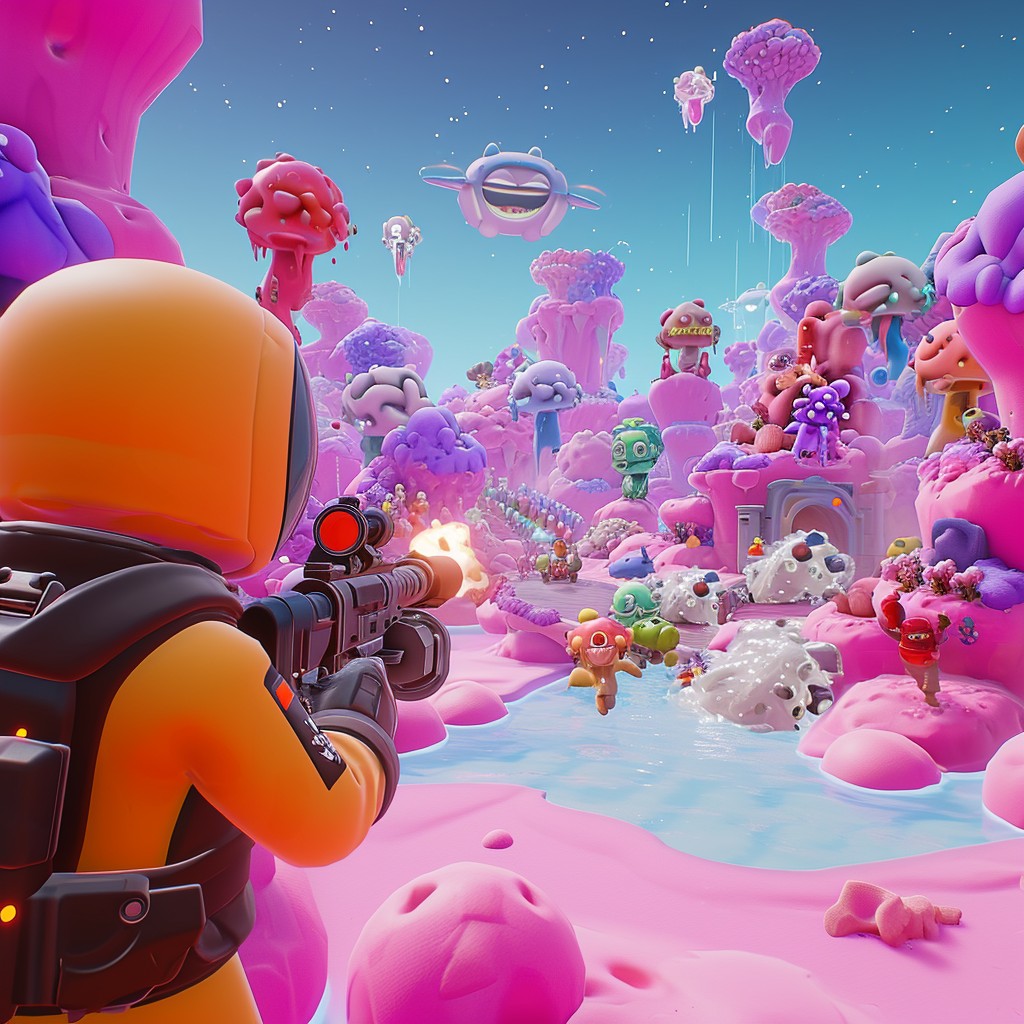Games publisher Square Enix has declared its intention to integrate AI-generated assets in its upcoming multiplayer online shooter, Foamstars. While this decision has stirred controversy, Square Enix maintains that AI’s role will be minimal, though transparent.
In a climate where AI’s encroachment on creative industries is sparking heated debates, Square Enix’s recent announcement has raised eyebrows. Concerns about AI potentially displacing human artists are gaining traction, with the gaming industry becoming a focal point of this discussion.
The game publisher clarifies that their initial use of AI in Foamstars was restricted to crafting in-game album covers for the soundtrack. However, the company has expressed a desire to explore AI’s capabilities further in future projects, signaling a broader application.
President’s vision for AI
Square Enix’s President, Takashi Kiryu, envisions generative AI as a transformative force. He believes it can not only reshape creative outputs but also revolutionize the creative process, including programming. Kiryu asserts the company’s commitment to aggressively applying AI to enhance productivity and create fresh content.
Kiryu assures that a negligible fraction, approximately “0.01% or even less,” of Foamstars is AI-generated. The core gameplay remains a product of human design and craftsmanship.
AI image generator and controversy
Square Enix openly acknowledges its use of the AI image generator, Midjourney, which recently made headlines due to its association with a controversial artist database. This disclosure has raised concerns among artists about potential repercussions for their livelihoods.
Square Enix’s bold stance on AI comes at a time of uncertainty for creative professionals, especially in light of recent controversies such as the one involving Wizards of the Coast.
Square Enix’s approach to AI: a closer look
In an industry grappling with the ethical implications of AI, Square Enix is navigating a delicate balancing act. They are striving to harness AI’s potential while being mindful of the concerns it raises within the creative community.
Square Enix’s transparency regarding their AI usage distinguishes them from some other entities that have faced backlash for less forthright approaches. By openly acknowledging the role of AI in their creative process, Square Enix hopes to foster understanding and trust among its audience.
Square Enix’s proactive approach to AI is driven by the desire to streamline productivity and offer fresh experiences to fans. While the exact scope of AI integration in future projects remains uncertain, the company’s intentions are clear: AI is a tool to enhance creativity, not replace it.
Looking ahead
As Square Enix charts its course into the future, it remains to be seen how AI will continue to shape the gaming landscape and the broader creative industry. The balance between technological advancement and preserving the essence of human creativity is a challenge that many companies in the entertainment sector are grappling with.
Square Enix’s decision to incorporate AI-generated assets in Foamstars reflects the ongoing debate within the gaming and creative industries about the role of AI in artistry. While the company assures minimal AI involvement and emphasizes its commitment to creativity, the controversy surrounding AI’s impact on artists and the industry’s future remains a pertinent issue.





